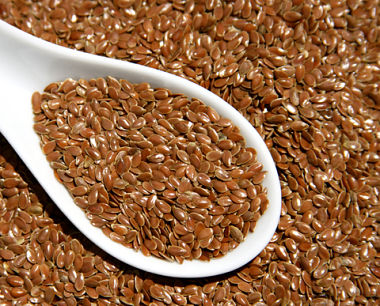Why Consuming Fish for Omega-3s Is Like Eating Radioactive Vegetables
You can’t eat a single nutrient in isolation. This includes overhyped omega-3 fatty acids. Whether you get these nutrients from food or pills, they’re part of a package.
Here’s an illustration. Just imagine for a moment you want to get more fiber into your diet and decide vegetables are the way to do this. So you buy some veggies, but they were grown near Japan’s Fukushima Daiichi nuclear plant and have low levels of radioactivity. Not enough to kill you right away, but enough to raise your cancer risk through the rest of your life. How likely are you going to be to want those veggies? Because the fiber and everything else good in the veggies is there, but the radioactivity pollutes the whole package. You can’t have one without the other.
Essential fatty acids give you a similar choice. Do you want your omega-3s packaged with dangerous components that make you sick? Especially when you can get them in packages with lots of other substances that boost your health?
Fish and fish oil, which cleverly written ads and even many nutrition “experts” push for their omega-3s, come most often come packaged with a load of undesirable components:
- Mercury
- Toxic persistent organic pollutants
- Cholesterol
- Saturated fat
- Parasites
- Microbes that cause food poisoning
- Drugs used on fish farms
- Destruction of the marine ecosystem that supports life on our planet.
Lab analysis proves that even factory distillation leaves many pollutants behind in fish oil. So although the omega-3s are present, so are a lot of things you don’t want, but have to accept if you choose this package. Remember, plants are the base of the food chain, so there is no desirable nutrient in fish that did not originate in far more nutritious plants.
Flax seeds are a way better option, a package of gifts you want. Keep in mind you need to grind flax seed to get its nutritional benefits. The seed has a very hard shell. If you don’t grind it before eating, it will go through your digestive system intact and you get no benefit.The best way to grind flax is in a coffee grinder. Grind enough for a week or two and keep it refrigerated, or buy it already ground. Eat two tablespoons a day sprinkled on cereal, oatmeal, salads, wraps, grains, or mixed in smoothies.
Here are five ways these tiny powerhouses nourish your needs.
First, flax seeds are high in omega-3s. The only two essential fats you need from food are omega-3s and omega-6s. These fats are part of your cell membranes. They help regulate cholesterol metabolism, also providing the building blocks for hormone-like substances that are critical in regulating various bodily functions such as blood

Flax seeds come with a very pretty package of healh gifts. The same cannot be said of fish and fish oil.
pressure, blood clotting, and immunity.
Omega-6s are like the gas pedal in a car and omega-3s are like the brakes in terms of inflammation. You need both to keep cruising down the road at an ideal speed. However, to suggest that inflammation can be turned off by omega-3s, like turning off a light with a light switch, is inaccurate and way oversimplifies the incredible complexities of your body.
In thinking of these fatty acids, the primary question is balance, not deficiency. Wild plants have about equal amounts of omega-3s and omega-6’s. However, farmed or domesticated plants, for the most part, have far more omega 6’s than 3’s.
Flax seeds in an exception to this general rule and are a bountiful source of omega-3s. The main myth you will hear is that your body cannot transform the “short-chain” omega-3s in flax into the “long-chain” omega-3s that are also required.
The myth that humans cannot make long chain omega-3’s we need fails miserably. Research does not support this idea. For example, a recent European study of over 14,000 adults contrasted the levels of long-chain omega-3s in the blood of fish eaters, meat eaters, vegetarians, and vegans. The fish eaters consumed way more long chain omega-3s than the other groups did. However, the amounts of these long-chain fatty acids measured in the blood varied little among the groups. In other words, the people who ate the least

Processed vegetable oils are generally high in omega-6s. These interfere with your body's natural ability to convert short chain omega-3s to long chain omega-3s. Why? Both types of omegas use the same enzyme to accomplish the transformation. Eat whole foods and avoid processed oils, whether in a jar or a tub of margarine.
long-chain omega-3s were most efficient at converting the short chain (such as found in flax seeds) to these long chain forms.
The assertion people can’t make long-chain omega-3s fails any common sense test. Since our ancestors thrived for millions of years without omega-3 supplements or regularly (if ever, in most cases) eating fish, this concern is a bit nonsensical.
However, there is a core of truth. The same enzymes that help your body form long-chain omega-3s also help your body make long-chain omega-6s. How do you know you have the enzymes that enable these conversions? Let’s start with the fact you are alive. You could not survive without these enzymes. However, if you eat lots more omega-6’s than you do omega-3’s, the 6’s can swamp out the 3’s. This is most likely to happen if you consume vegetable oils, which are concentrated omega-6 sources. Stick to whole plant foods without added oils.
Second, flax seeds are high in fiber, which fish and fish oil totally lack. Fiber helps sweep toxins and excess hormones from your body. If you have any issues with constipation, see how well flax seeds can get rid of this issue for you. Research also indicates that fiber lowers blood pressure, reduces the risk of cardiovascular disease, and decreases insulin resistance.
Third, flax seed is a whole food with many protective phytochemicals (beneficial nutrients found only in plants). Lignans, a phytochemical found in substantially higher amounts in flax seeds than in almost any other plant, have been shown to have potent anti-tumor effects for prostate, breast, and colon cancers. For example, one study found that lignans significantly reduced the growth rate of prostate cancer, possibly by depriving tumors of their blood supply and causing the cancer cells to self-destruct.
Studies indicate that lignans may also lower the risk of cardiovascular disease. This phytochemical reduces cholesterol and systemic inflammation.
Fourth, flax seeds are amazingly affordable. In fact, your daily two tablespoons should cost you about 7 or 8 cents if you buy whole flax

You can buy several days worth of flax seed for these many pennies. No one is getting rich. Hence no ads, no hype. Only value for you.
seed and grind it yourself. If you buy it already ground, you’ll pay a few pennies more. Contrast this with the cost of fish, fish oil, or drugs. If a medication were this powerful, you can bet no drug company would sell it for a few cents. Flax seeds are jewels that just about anyone can afford. So much for the notion that health has to be expensive.
Fifth, flax seeds are widely available and convenient. As more people are learning about their benefits, flax seeds are soaring in popularity. You can find them in any natural foods store and even many supermarkets. Order online if you cannot find them locally.
Flax seeds, although unique and powerful, will not in themselves overcome the health consequences of a diet based on animal and manufactured foods. Instead, see flax seeds as a desirable part of a whole foods, plant-based diet.
If you want to learn more about omega-3s, you might enjoy the post Seven Reasons Omega-3s From Plants Clobber Fish and Fish Oil. To learn 10 reasons fish is not healthy to eat, check out the post Fish Contains Worm Larvae.
Intrigued? Now you can use our Whole Foods Blog Finder to target informative, fun postings on plant-based nutrition. Quick information at no cost!
Blog posting by Janice Stanger, Ph.D. Janice authored The Perfect Formula Diet: How to Lose Weight and Get Healthy Now With Six Kinds of Whole Foods. This easy-to-follow eating plan is built on whole foods, plant-based diet that can prevent, and even reverse, most chronic disease.
Tags: cardiovascular disease, fiber, fish, fish oil, flax seeds, getting healthy, inflammation, Janice Stanger, lignans, nutrition facts, omega-6s, omege-3s, Plant-based nutrition, whole foods plant-based diet






